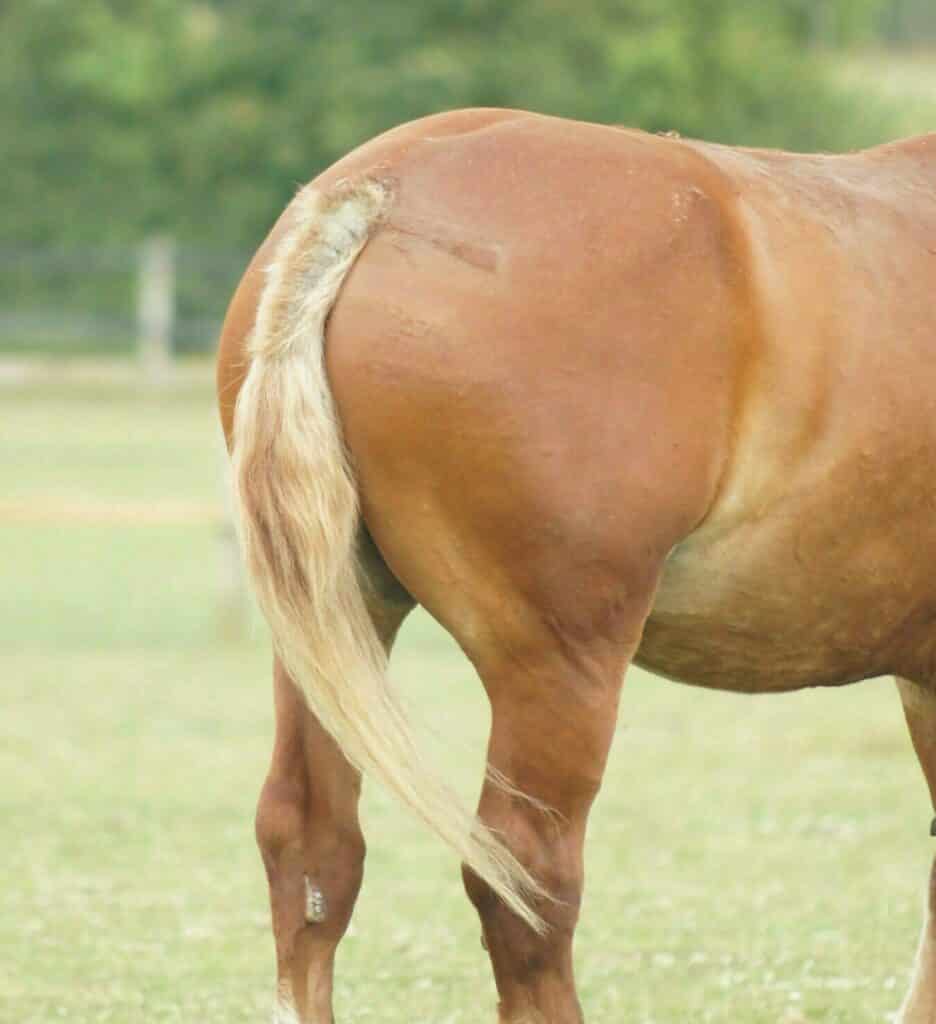Daily Management, Diseases & Conditions, Featured, Veterinary
Sweet itch
Rebecca Watson MSc RVN, outlines how to tackle the seasonal misery of sweet itch
An allergic response in the horse to the saliva in the bite of the female Culicoides midge, sweet itch causes intense itching followed by an autoimmune over-reaction in the skin. The midges are most active at dusk and dawn during the months of March to October, hence sweet Itch is a seasonal problem.
If your vet has ruled out any other possible causes e.g., Oxyuris equi (pinworm), lice or other allergies, and you are certain your horse is suffering from sweet itch, here are preventative measures and treatment options.
Preventative measures
Preventative measures should be initiated well in advance of the midge season commencing in spring.
Good insect control is vital. Encourage midge hunters in and around your yard, such as bats and frogs – a single bat can eat up to 3,000 midges in one night!
Use an effective fly repellent, consult your vet for advice on available preparations and which may work best for you. Products containing pyrethroid or permethrin-based ingredients have been shown to be very effective.
Only use insect repellent products designed for horses, some chemical insecticides used in other species can cause serious illness in horses (e.g., Amitraz). No matter what you decide to use, always do a ‘patch test’ first.
Benzyl Benzoate can be rubbed on the skin of the mane and tail to help repel the midges and prevent them from biting but, it should not be used on broken skin, so best used as a preventative measure rather than a treatment.
If possible stable the horse between 4pm and 8am as this is when the midges are most active. Midges do not like to fly in strong winds, so increasing the airflow in stables with fans will prevent them from setting up residence in your barn. Also, consider misting non-toxic insecticide sprays in the stable environment to further repel them.
Avoid turn out in wet or boggy fields, near water or close to hedge rows and trees as midges like stagnant water and shelter, in which to live and breed. Remove droppings from pasture regularly.
Check your drainage and try to eliminate stagnant pools of water around the stable / yard and paddock areas.
The use of fly veils / masks and rugs has been shown to dramatically reduce the incidence of insect bites. Any exposed skin should be treated regularly with a good insect repellent.
Dietary changes
Some dietary changes, introduced in the winter months, that have been shown to help reduce the incidence and severity of sweet Itch include:
- The addition of Omega 3 oils, which are anti-inflammatory. Linseed (or flaxseed) and fish oils (such as cod liver oil) are high in Omega 3s and have been shown to dampen the allergic inflammation response in the skin, thus reducing the severity of the itching.
- The use of ‘in-feed’ insect repellent such as garlic or apple cider vinegar have been reported to be successful by some horse owners.
- The commercially available Fidavet Cavalesse® contains nicotinamide and is useful for all types of allergic skin disease in the horse. It reduces the production of histamine (the substance which causes the itch) and improves the skin lipid (oil barrier) by increasing the amount of natural fats on the skin surface.
- Lastly, a recent but reportedly effective preventative measure is a vaccine developed for ringworm, which has been found to reduce the incidence of sweet itch symptoms in some horses that have had the vaccine. A course of two injections with a 2-week interval should be administered before the start of the midge season. It can be used off license by UK veterinary surgeons so, speak to your vet for details.
Treatment options
Once your horse has sweet itch lesions, the only remedy is symptomatic treatment to alleviate the severity of the itching and discomfort. Treatment options include:
- Steroids – anti-inflammatory medication that can be prescribed by your vet – short and long-acting options are available; use with caution as this can increase the risk of laminitis.
- Antihistamines – effect is variable and a high dose is required, which can make them an expensive treatment option.
It is important to remember that every horse responds differently to therapy.
in the case of sweet itch prevention really is better than cure so, removing the horse from exposure to biting midges and, taking preventative measures as outlined above will help to manage the situation.
Further reading: What is my horse allergic to?

